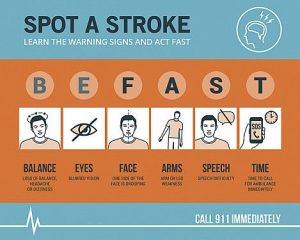
Diabetes is a chronic illness that affects millions of people worldwide. It is a condition in which the body is unable to properly regulate blood sugar levels, leading to a variety of symptoms and complications. However, with proper management and lifestyle changes, individuals with diabetes can live a healthy and fulfilling life. In this comprehensive guide, we will explore the various aspects of diabetes management, from monitoring blood sugar levels to making dietary changes and incorporating exercise into your daily routine.
Understanding Diabetes
Before we delve into diabetes management, it is essential to understand the different types of diabetes and how they can affect your health. There are three main types of diabetes: Type 1, Type 2, and gestational diabetes. Type 1 diabetes is an autoimmune condition in which the body’s immune system attacks the insulin-producing cells in the pancreas. Type 2 diabetes is the most common form of diabetes and is often associated with obesity and lifestyle factors. Gestational diabetes occurs during pregnancy and usually resolves after giving birth.
Monitoring Blood Sugar Levels
One of the key aspects of diabetes management is monitoring your blood sugar levels regularly. This can be done using a blood glucose meter, which measures the amount of sugar in your blood. By keeping track of your blood sugar levels throughout the day, you can better understand how different foods and activities affect your body. It is crucial to work with your healthcare team to determine your target blood sugar range and develop a monitoring schedule that works best for you.
Healthy Eating Habits
Diet plays a significant role in managing diabetes. By making healthy food choices and monitoring your carbohydrate intake, you can help regulate your blood sugar levels and maintain a healthy weight. A balanced diet rich in fruits, vegetables, lean proteins, and whole grains can help improve your overall health and reduce your risk of developing complications related to diabetes. Additionally, working with a registered dietitian can help you develop a personalized meal plan that meets your nutritional needs while keeping your blood sugar levels in check.
Incorporating Exercise
Exercise is another essential component of diabetes management. Physical activity can help lower blood sugar levels, improve insulin sensitivity, and maintain a healthy weight. Aim to incorporate at least 150 minutes of moderate-intensity exercise, such as brisk walking or cycling, into your weekly routine. Additionally, strength training exercises can help improve muscle mass and increase your metabolism, further supporting your diabetes management efforts. Be sure to consult with your healthcare provider before starting any new exercise program to ensure that it is safe and appropriate for your current health status.
Medication and Insulin Therapy
Depending on the type of diabetes you have, you may need to take medication or insulin to help regulate your blood sugar levels. Oral medications, such as metformin, can help lower blood sugar levels by improving insulin sensitivity or reducing glucose production in the liver. If oral medications are not sufficient, your healthcare provider may recommend insulin therapy, which involves injecting insulin into your body to help balance your blood sugar levels. It is essential to follow your medication regimen and monitor your blood sugar levels closely to ensure that your diabetes is well managed.
Regular Medical Check-Ups
Regular medical check-ups are crucial for monitoring your diabetes and identifying any potential complications early on. Your healthcare team may recommend regular blood tests, eye exams, foot exams, and other screenings to ensure that your diabetes is well managed and to address any emerging issues promptly. By staying proactive and maintaining open communication with your healthcare provider, you can take control of your diabetes and lead a healthy life.
Conclusion
Diabetes management requires a comprehensive approach that includes monitoring blood sugar levels, making healthy lifestyle choices, and working closely with your healthcare team. By understanding the different aspects of diabetes and taking proactive steps to manage your condition, you can reduce your risk of complications and improve your overall health and well-being. Remember that diabetes is a manageable condition, and with dedication and support, you can lead a fulfilling life while effectively managing your diabetes.
Remember to consult with your healthcare provider before making any significant changes to your diabetes management plan to ensure that they align with your individual needs and health goals.

